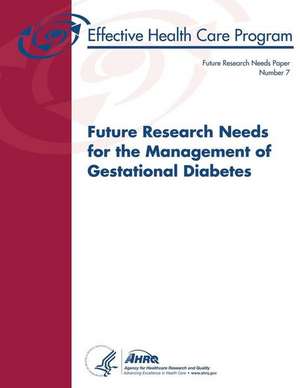Future Research Needs for the Management of Gestational Diabetes
Autor U. S. Department of Heal Human Services, Agency for Healthcare Resea And Qualityen Limba Engleză Paperback
Preț: 144.40 lei
Preț vechi: 152.00 lei
-5% Nou
Puncte Express: 217
Preț estimativ în valută:
27.64€ • 30.03$ • 23.23£
27.64€ • 30.03$ • 23.23£
Carte disponibilă
Livrare economică 31 martie-14 aprilie
Preluare comenzi: 021 569.72.76
Specificații
ISBN-13: 9781489501714
ISBN-10: 1489501711
Pagini: 142
Dimensiuni: 216 x 280 x 8 mm
Greutate: 0.35 kg
Editura: CREATESPACE
ISBN-10: 1489501711
Pagini: 142
Dimensiuni: 216 x 280 x 8 mm
Greutate: 0.35 kg
Editura: CREATESPACE
